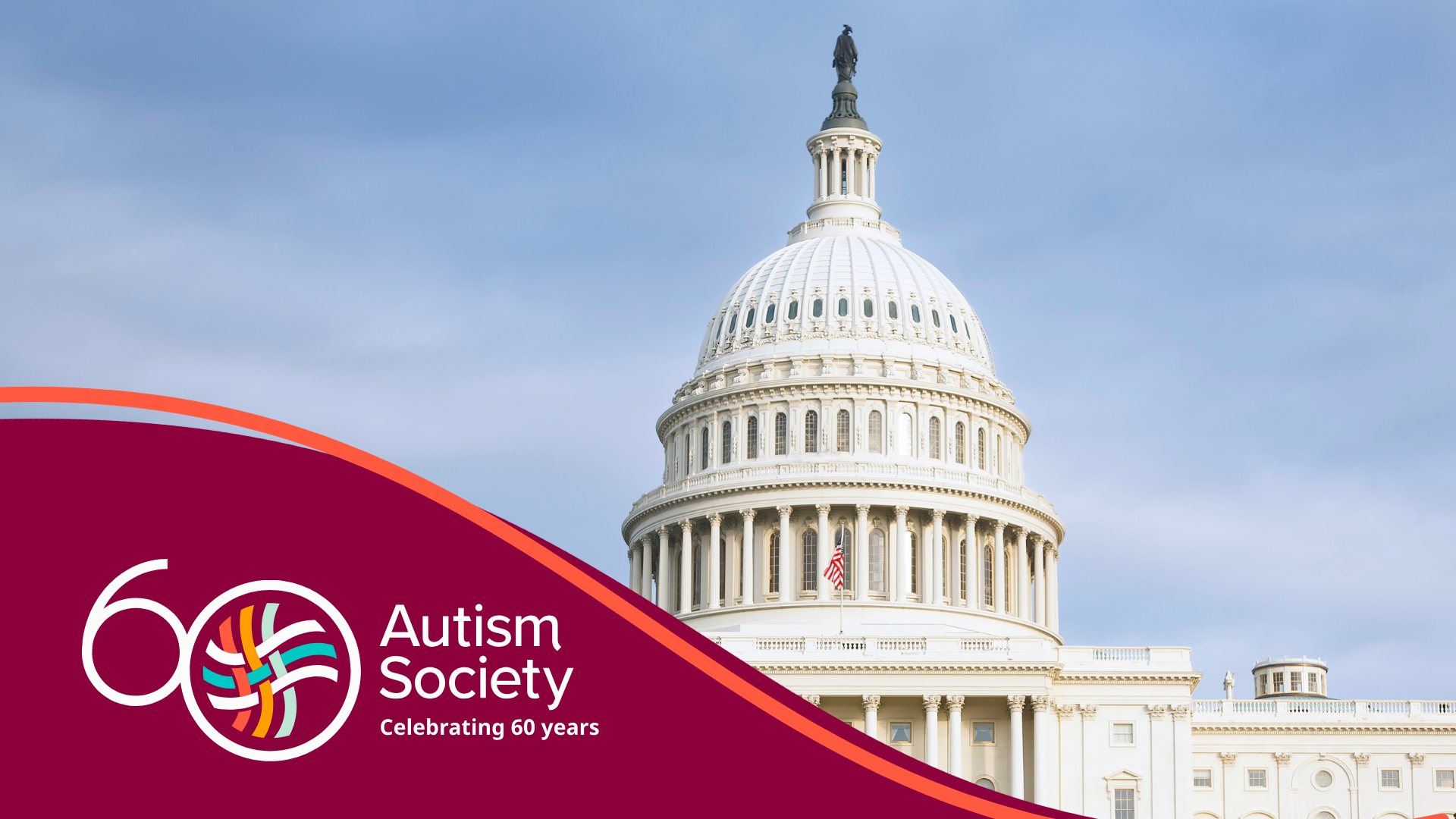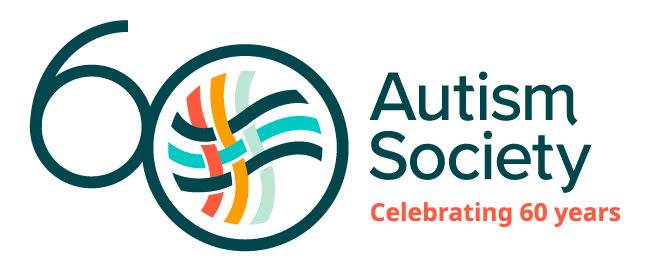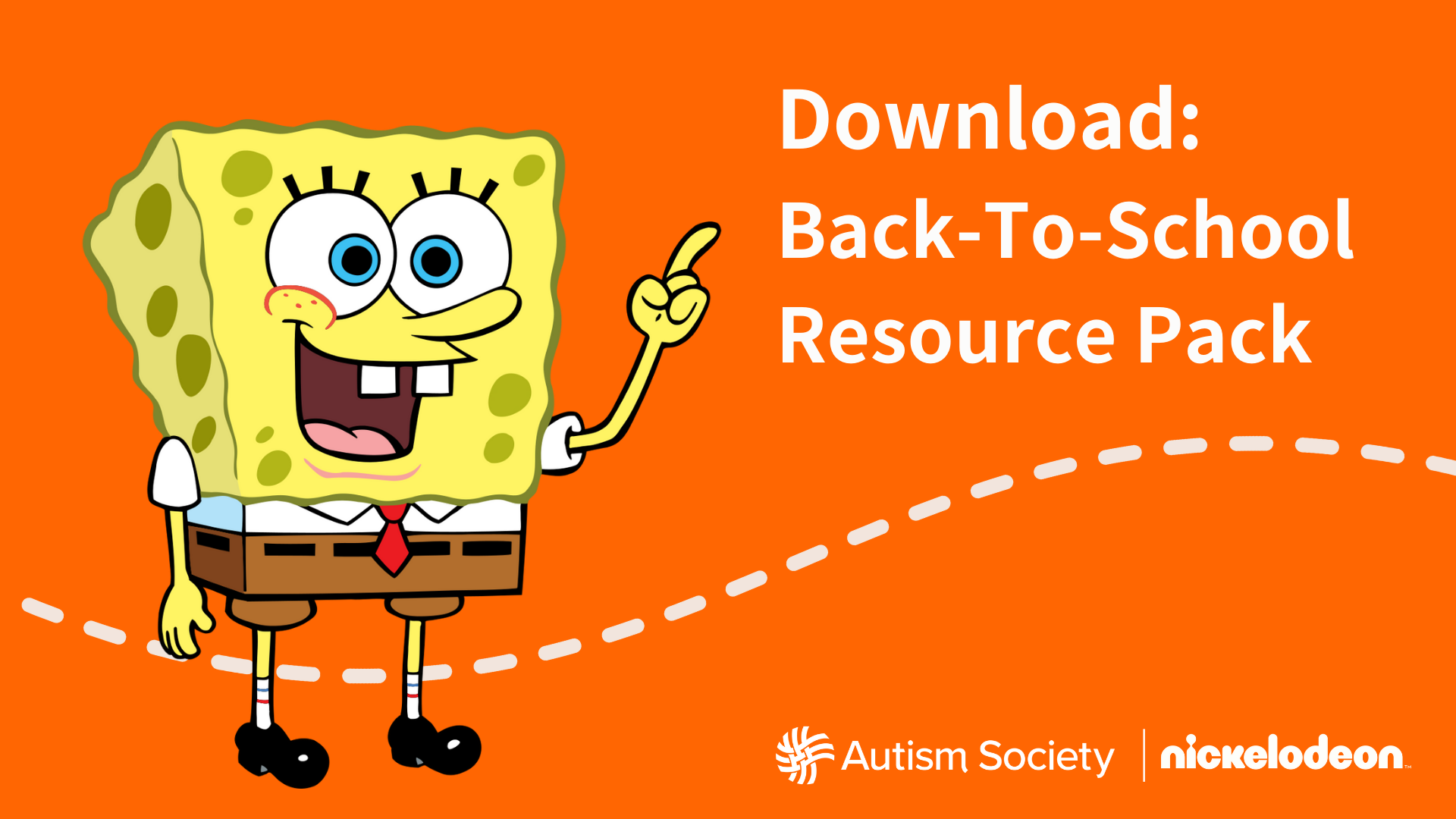
In this issue of Capitol Connection, learn more about the current Government Shutdown and the Reduction in Force. We encourage you to visit the Autism Society’s Action Center to connect with your Members of Congress on key issues and, if you are able, please consider supporting our state and federal advocacy work with a gift during this critical time. Your partnership is essential as we continue fighting for meaningful policies, resources, and protections for our community.
Government Shutdown
At midnight on September 30, the federal government entered a shutdown after Congress failed to approve new funding for Fiscal Year 2026 or pass a Continuing Resolution (CR) to temporarily extend current funding levels. Both Republicans and Democrats introduced competing CRs that would have maintained last year’s spending levels but differed on key policy provisions. Congressional Democrats sought a CR that would reverse Medicaid cuts from H.R. 1—the “One Big Beautiful Bill Act,” enacted by Republicans through reconciliation—and permanently extend Affordable Care Act (ACA) premium tax credits. While some Republicans supported extending the ACA tax credits, there was not enough agreement to reach a deal before the deadline. The House Republican CR, which would have extended funding through November 21, excluded those healthcare measures, and Republicans rejected the Democratic proposal. Multiple votes in both chambers failed, leading to the current shutdown. The Senate is in session working to find a path forward. The House has continued to be on recess until the Senate comes to a deal. It is unclear where negotiations stand.
Government shutdowns can delay access to critical services and assistance for the public, including individuals with disabilities and their families. While benefits funded separately from annual appropriations—such as Social Security, Medicare, Medicaid, and Section 8 housing vouchers—continue; many support services are delayed. This includes assistance with the Supplemental Nutrition Assistance Program (SNAP) and Special Supplemental Nutrition Program for Women, Infants, and Children (WIC) benefits, energy help through the Low Income Home Energy Assistance Program (LIHEAP), housing inspections, and other federal programs that help people with disabilities and their families meet basic needs. Delays in processing applications, verifying eligibility, or providing program support can make it harder for individuals to access food, housing, healthcare, and energy assistance when they need it most, putting vulnerable populations at risk even if core benefits continue. See more in this explainer from the American Association of People with Disabilities.
Reductions in Force
The Administration indicated it would conduct mass reductions in force (RIFs), or layoffs, of the federal workforce during the shutdown. Beginning on October 10, these actions took place. The Autism Society has been closely monitoring the RIFs occurring within the Departments of Education and Health and Human Services.
U.S. Department of Education
The media reports indicate that more than 450 employees were laid off from the Department of Education. The Office of Special Education Programs (OSEP) and the Rehabilitation Services Administration (RSA) were reportedly among the hardest hit, with only a few senior staff remaining. The Autism Society is deeply concerned about how the Individuals with Disabilities Education Act (IDEA) can be effectively implemented, monitored, and overseen without sufficient staff capacity at the Department of Education.
The Autism Society published a joint statement with over 400 national and state, local organizations urging the Administration and Congress to reverse course immediately and restore staffing and transparency at the U.S. Department of Education. Please also use our Action Alert to message your Members of Congress on this critical issue.
U.S. Department of Health and Human Services
It has also been reported that more than 1,200 employees from the Department of Health and Human Services (HHS) have been laid off through the RIF process. The hardest-hit subagencies include the Centers for Disease Control and Prevention (CDC), the Substance Abuse and Mental Health Services Administration (SAMHSA), and the Administration for Strategic Preparedness and Response (ASPR). The Autism Society will continue to monitor the scope of these reductions, assess how they may affect programs and services supporting individuals with disabilities and their families, and advocate for the restoration of critical federal capacity.
Autism and Tylenol September Press Conference
On September 22, the White House held a Press Conference with leaders from HHS on Autism and Tylenol being correlated. The Autism Society of America supports research into Autism but is concerned that premature claims about causes or treatments can cause real harm. Autism is a lifelong, diverse disability with no single known cause or cure, and announcing unproven treatments risks traumatizing Autistic individuals, families, spreading stigma, and fostering false hope. While research such as preliminary studies on high-dose leucovorin is important, it must be rigorous, replicated, and grounded in complete science before being promoted. The Autism Society urges policymakers, researchers, and the public to prioritize research and services that improve quality of life and reflect the full diversity and needs of the Autism community.
See the Autism Society’s statement following the press conference and a joint statement with a diverse group of Autism organizations.
Share:






